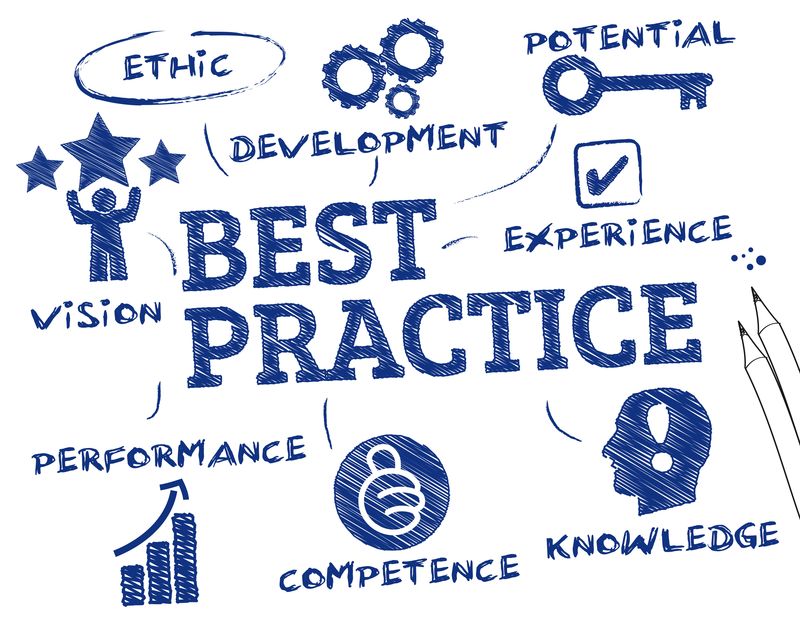
Strategic planning in the digital context is no different from business-wide strategic planning. An eCommerce strategic plan calls out the core activities a business must undertake to move the business in a direction that meets the business vision.
The only difference is this planning process focuses on the eCommerce website.
Businesses become frightened when they hear the term "digital strategy", but in essence, it's a business' "digital action plan"...
A plan of activities that must be undertaken by the digital channel to drive the business closer to its vision.
The purpose of this article is to explain the importance of eCommerce strategic plans (and the planning process) and provide helpful tips on how to find and a digital strategist who is right for your business.
Selecting a digital strategist is one of the largest challenges businesses face. The good news is, there are many things to look out for when applying due diligence. Below is a list of the most important...
Years of specific experience in strategic planning in digital
There is a lot to be said for having longevity in the field of eCommerce strategic planning. The business community is a small one in Australia and New Zealand and news travels fast (especially bad news).
If an eCommerce strategist is underperforming everyone will know. Longevity is a positive signal.
Testimonials/References
Having brands and logos on a website does not mean a client is happy with a digital strategist's work. Seek out testimonials where the comments state the standard of competency, specifically in strategic planning and implementation, was high.
Request references and call existing clients. Even though references are hand-picked, you can quickly determine if the digital strategist is a good fit for your business needs.
Experience in strategic planning AND implementation
It is very easy for eCommerce strategists to read blogs, regurgitate statements made by others, and incorporate this into their strategic planning documentation.
Unfortunately this is common.
The true test is in their ability to implement plans.
Why?
It is the process of bringing the plan to life that brings true value to the client. One of the most common issues in project implementation is that the strategic plan becomes lost in translation by the various vendors involved...
- Analysts
- The architecture integration team
- The design team
- The development team
- The project manager
The project manager is one of the primary culprits due to their focus being on time/quality/cost. Many will argue "quality" means the plan is being followed, but most project managers interpret "quality" as maintaining costs and meeting deadlines.
As a result, when it comes time to think dynamically on issues or hurdles, project managers make changes to suit deadline and does not inflate implementation cost.
Because of this implementation reality, it is the role of the digital strategist to work closely with the project manager at all times, auditing the conduct of all groups listed above to ensure the integrity of the plan remains intact.
If at any moment vendor conduct dilutes plan integrity, it is the role of the digital strategist to step-in and lead/coach/mentor the vendors to keep them on track.
If changes need to be made that affect time and/or cost, it is the job of the digital strategist and the project manager to inform business stakeholders.
This is crucial, stakeholders need to understand how changes in implementation will impact the plan. Only the digital strategist can articulate this because the strategic plan (which they created) becomes the reference point for decision making.
Vendor conduct resulting in the straying from the digital strategic plan, during implementation, occurs 100% of the time.
The eCommerce Strategist remains with the client and measures impacts
This is an extension of the previous point (implementation) but is different and equally important.
eCommerce Strategists who work with the client after their plan has been successfully implemented proves they are accountable for their work, and they want to share the outputs of their services with hard facts.
The process of measuring and monitoring verifies if the planning (and implementation) was a success.
This measurement process enhances the potency of future eCommerce strategic planning projects.
Deep Knowledge of Best Practice
The eCommerce Strategist must have a deep understanding of eCommerce best practices. While this is difficult to measure and gain a view of competency, you can gain a sense of a consultant's proficiency in this subject matter by simply asking them their opinions on its importance.

Greg Randall has written and published 5 books on this subject matter.
Why is best practice important?
When embarking on the feedback loop and continuous improvement business disciplines (this is where the business uses data and insights to inform future decision making for the business), IF the business has best practice infused throughout, it can be confident all feedback from the consumers (they are engaging with), are needs driven.
When not based on best practices, the majority of consumer feedback is often driven by the shortcomings of the digital channel and the poor experiences it provides, rather than what a consumer truly needs or wants. This makes the business reactive, resulting in increased non-value-added operational costs. This stunts business growth.
Needs driven feedback forms the basis for business evolution and is how a business can closely align its offer to target consumer needs.
Working from a best practice foundation enables the business to grow and evolve faster than predictions and is why new online businesses surpass traditional competitors. They start on a best practice foundation specifically made for the digital channel.
What should the eCommerce Strategic plan look like?
It's easy to say you need a strategic plan, but there are questions that comes with this deliverable...
- What should the strategic planning document actually contain within it?
- What does this document (the deliverable) look like?
- How does this document help the business?
eCommerce strategic plans have two fundamental themes:
- The plan will define the wider strategic focus of the business.
- The plan defines the specific role the eCommerce website must fulfil to support the broader business strategic needs of the organisation.
The document then defines in detail what the eCommerce website requires in order to produce success. Some examples are listed below...
- What the eCommerce platform requires.
- How the eCommerce platform must interact with other business systems.
- User experience design required to create amazing online experiences.
- The eCommerce best practices that are required.
- How will business pain points be diminished by the right treatment of the above 4 points?
- The specific conduct of employees and eCommerce Vendors that are required.
- The size of the opportunity for the business model.
- The core activities that need to be activated in a MVP (minimum viable product) and Phase 1 project.
Creating an MVP to deliver short-term wins while protecting the long term plan
Short term priorities (such as ROI) can be supported if it comprises part of the long term plan. While the business can gather immediate benefit from the strategic plan, it is still foundation building for the long term.
This process protects the business from cannibalising long-term needs for short-term gain.
Conclusion:
Final comments...
An eCommerce Strategic should not try to lock the business into a long-term engagement, even though they should remain for implementation and measuring outcomes. It is the calibre of his/her work that should prompt a long-term relationship.
The eCommerce strategic planning document is your eCommerce Roadmap Bible. As a result, it needs to be written in "business speak" to ensure the executive team can understand every word.
It is this team that must approve the investment and understand the future of this channel. This is a critical requirement of the eCommerce Strategist.
If you are interested in learning more about this service, call Greg Randall on 0477723474 or email greg@commaconsulting.com.au.
This article was as tagged as B2B , Best Practice , Digital Strategy , Digital Transformation